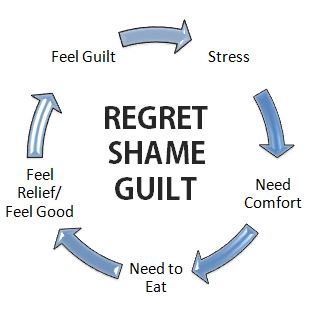Meditations and Tips for Emotional Eating
Mindfulness
Let’s face it. Most of us know how to lose those unwanted pounds. We have to change how we eat. We have to shift our habits We know those cookies and that ice cream won’t help us lose weight but why do we eat it? Well, humans aren’t as rational as we think we are. We’re emotional and eating is often an emotional act. And yes, this has been a stressful year.
Recent studies on psychology point to one personality trait that is most successful in helping people lose weight and maintain it. This trait is awareness or mindfulness, a trait we strive for in our yoga practice, but what does it mean?
Thich Nhat Hanh once said:
“When I hold a piece of bread, I look at it, and sometimes I smile at it. The piece of bread is an ambassador of the cosmos offering nourishment and support. Looking deeply into the piece of bread, I see the sunshine, the clouds, the great earth. Without the sunshine, no wheat can grow. Without the clouds, there is no rain for the wheat to grow. Without the great earth, nothing can grow. That is why the piece of bread that I hold in my hand is a wonder of life. It is there for all of us. We have to be there for it.
“Eat with gratitude. And when you put the piece of bread into your mouth, chew only your bread and not your projects, worries, fears or anger. This is the practice of mindfulness. You chew mindfully and know that you are chewing the bread, the wonderful nourishment of life. This brings you freedom and joy. Eat every morsel of your breakfast like that, not allowing yourself to be carried away from the experience of eating. This is a training.”
Breaking Childhood Patterns
Much of how we eat can stem from how we were raised. Some of us were given foods as a reward or punishment and the food represents our failures and our achievements. Unhealthy treats may be something we feel entitled to if we think we are acting in accordance with society’s laws. Food symbolizes issues that have nothing to do with health.
If we come from a place of poverty, we might want to eat any type of food as long as we can get it. It doesn’t matter the quality of the food. Sometimes we’re taught to eat everything even if we are no longer hungry for fear that there might not be food tomorrow. However, if you are over weight, this is not a good habit. The food will keep getting stored as fat. These mindsets happen beneath our conscious awareness. By bringing our mind to the present moment and really appreciating what is right in front of us, we can change these habits.
I suggest thinking like Thich Nhat Hanh, when we go grocery shopping or when we read a menu at a restaurant. Look at the food. Take a moment to reflect on what its made of. Look at the ingredients. When you by a fresh vegetable, reflect on how it was grown. Notice the sun and rain that went into the growth of that vegetable. Ask yourself how your body will feel when fresh food is inside you.
When you buy something that is processed, think of all the ingredients that went into the making of the food. Imagine what the preservatives, artificial colors, added sugars and salts will do to your body when it is inside you. Really imagine how those ingredients will make you feel over time. What kind of food do you truly deserve? Are these chemicals, added sugars and fats really a treat? Perhaps its time to change our perception.
Since I became a nutritionist and really started to understand food, I’ve been doing more of this type of meditation and it has helped me a lot. I don’t struggle with my weight like I used too. When I eat fruits, I really relish the hydration I’m getting from it and I am grateful to live in a place that has fresh fruit. Because of this, I have decided to always choose fresh fruit over dried, canned or processed fruit as long as I have that choice.
When we eat out with friends and family, it is time to focus on them. I once new a girl who lost a lot of weight and looked incredible. I knew her for many years as she went to my high school and she never looked so healthy and attractive. I asked her how she did it. I thought she would have some kind of beauty secret. I thought she would tell me she was seeing an alternative doctor. But I’ll never forget what she said. She said that all her life her mother made her feel like food meant love. Because her mother cooked, she had to eat all she could. When she realized that its just food and didn’t represent how she felt about her mother, she was able to lose weight.
I often think about what my friend said. I now realize that when I go out to eat, I don’t have to gorge myself. I can nibble. I can choose small servings and say “no” when offered a lot of food. As an adult, no one can force me to eat or make me feel bad for not eating. They will appreciate it more when I focus more on them than on the food. Once we come to terms with why we see food the way we do, we make huge breakthroughs.
The Regret, Shame, Guilt Eating Cycle

Most of us are aware of the regret, shame guilt cycle. We feel guilt so we eat. We regret eating so we feel guilt. So we eat.
This is a very difficult puzzle to solve but I believe that the solution has a lot to do with self love. When I taught the chakra opening workshop, I addressed the 2nd and 3rd chakra; the chakras of creativity and will power. They are blocked by shame and guilt.
To help us let go of our shame we meditated that we were at the beach and written on the sand are all the horrible things people make us feel about ourselves. It might say, “lazy” or “fat” or so on. Then think of who you were before life has made you feel unworthy. We imagine that we wipe the words away with our feet. Then we watch as the waves come to the shore to wash away the sand. Those negative words no longer exist and they never have because we were the only ones who saw them.
Then, we walk on to see a lovely stone. We take a pick and write on the stone words that describe who we really are, words like, “talented,” “good,” “accomplished,” etc. We inscribe these words permanently on the stone. We become more confident about ourselves and the things we can create. We respect ourselves and others more because of this.
Guilt is another feeling. It’s similar to shame, but unlike shame, guilt is the feeling that we have done something wrong. Shame is a feeling that we, ourselves are bad. The best way to deal with guilt is to have the resolve to tell yourself that you are sorry for what you have done and once you have apologized, resolve to find a way not to make the same mistake again. Being able to do this takes some emotional courage. It means listening to your emotions instead of drowning them with food, drugs or any other addictive activity. But eating our way out of an emotion doesn’t end any cycle because it never addresses the issue.
“When we have a meal in mindfulness, we invest all our being in the present moment and are aware of our food and those who are eating with us. We can cultivate the energy of mindfulness while we walk , while we breathe, while we work, while we wash the dishes or wash our clothes. A few days practicing like this can increase the energy of mindfulness in you and that energy will help you, protect you, and give you courage to go back to yourself, to see and embrace what is there in your territory.”
“There are real, painful feelings, strong emotions and troubling perspectives that agitate or make us afraid. With the energy of mindfulness, we can spend time with these difficult feelings without running away. We can embrace them the way a parent embraces a child and say to them, “Darling, I am here for you; I have come back; I’m going to take care of you.” This is what we can do with all our emotions, feelings, and perceptions.” –Thich Nhat Hanh
Overcoming Failure and Obstacles
A few years ago a controversial study was released that showed that positive visualization doesn’t always lead to the achievement of goals. This contradicted other studies that visualizing success leads to success. But it isn’t that simple. Visualizing that you lose weight is a wonderful fantasy that you may or may not achieve but there is one visualization that works better than any other.
Its when we visualize overcoming failure and obstacles that we are most likely to succeed. For example, I had a client who succeeded in losing 10 lbs. while training with me but her goal was to lose 10 more. She knew that whenever she goes to a party she over eats and gains weight, so we went over what she should do when she attended the party that weekend so she would not regress on her goals. We decided that she would not eat before the party, stay away from the food table and sip on a lot of water. Because she planned ahead of time, she was able to avoid inevitable failure.
So, for the final meditation, visualize something that always causes you to fall back on your healthy habits. Perhaps its stress at work, a party, or lack of time. Think about this obstacle before it happens and create a plan on how you will deal with it. This usually means planning how to make your meals, where to eat and what to buy ahead of time so we are driven by mindfulness and not by subconscious drives.
I hope these tips help end the cycle of emotional eating and help to bring some clarity and health to your day.
“Our minds create everything. The majestic mountaintop, brilliant with snow, is in you yourself when you contemplate it. Its existence depends on your awareness… The sights and sounds of the world are not your enemies. your enemy is forgetfulness, the absence of mindfulness. –Thich Nhat Hanh

More blogs on mindful eating:
